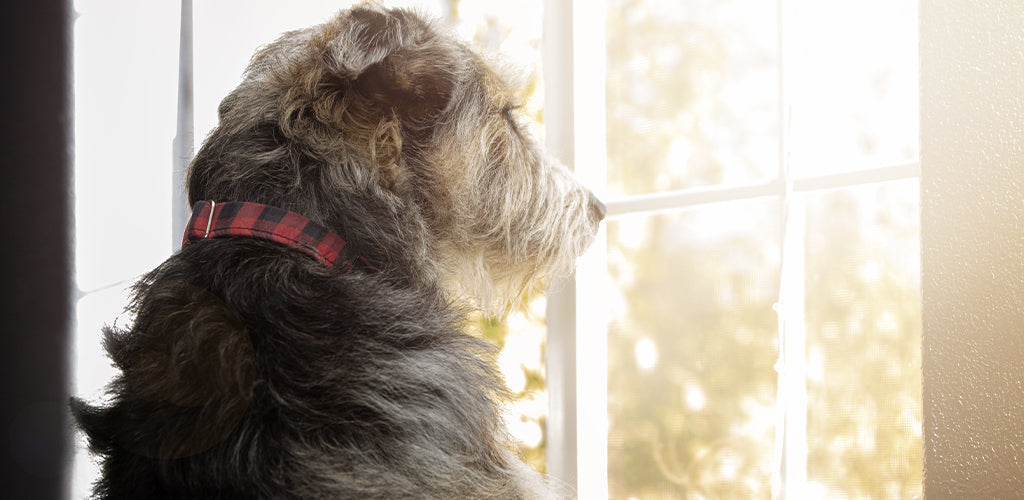In 24 cities

3 Behavioral Changes In Senior Dogs And Its Reasons
|
|
Time to read 3 min
Get product availability and delivery timelines based on your location.
Are you sure you want to delete this address?
Help us ensure a smooth delivery
Help us ensure a smooth delivery
SIZE GUIDE
|
|
Time to read 3 min
Do you have an old dog, a companion whom you have cherished every day since you brought them home? No wonder! Our dogs have beautiful and loyal souls. They easily become a family member and find a place in our hearts forever.
Like every pet parent, you must also like to spend time with them playing, running and serving them their favourite food items. But at some point in time, this activeness declines. You begin to notice some physical as well as mental changes in them. If not today, you might start seeing these signs in the future.
The prime reason behind these changes is ageing. As our dogs age, they may show certain behaviours which were not seen before. Therefore, during such times, you need to pay special attention to your dog and their activities. To help you identify certain senior dog behaviours and the reasons behind them, we have drafted the list right here!
The chances of experiencing anxiety disorders increase in older dogs. Especially, separation anxiety is likely to crop up in elderly dogs. The culprit behind this imbalance can be cognitive dysfunction, sensory decline or pain. Hence, it is important that you keep tabs on your dog. Try to avoid alone time or ask someone to pet sit them. This way you can comfort your pet and reduce anxiety.
Unfortunately, senior dogs are highly susceptible to body and joint pains. These may include several disorders causing pain and stiffness such as arthritis, dental disease and osteoporosis. If the painful region is touched, even unintentionally, it can trigger or worsen the chronic pain and can further lead to an increase in the stress level of your pet. And as a result, they may react violently or bark at you. To avoid this, consider the below mentioned pointers:
Cognitive functioning is somewhat affected by ageing as well. This is common in senior dogs. This alone can result in various behavioural changes in dogs which pet parents should be aware of to opt for the necessary solutions. Some of them are mentioned below -
Along with these, cognitive dysfunction may lead to interrupting their sleep cycles and causing apathetic behaviour.
We are sure that when you discover the above-noted symptoms in your companion, you must want them to be resolved to have a thriving and long-lasting relationship with your pet. And, what better than consulting a vet, right? After all, veterinarians are the most experienced and specialized professionals for pets to guide you regarding pet problems, be it behavioural, physical or accidental.
We also offer such services and provide a platform for pet parents and renowned vets to interact with each other. You can explore our website and get yourself enrolled in our online vet consultation with behavioural experts to know some potential remedies to your dog’s behavioural problems.
Further Reading:
How To Identify If Your Pet Has A Food Allergy?
Everything you need to know about feeding your puppy
Best Ways To Take Care Of Your Dog During Winters
How to Take Care of Your 'Good Old Dog'?
Share this blog
Read More Articles
2 item in cart
₹10,360

